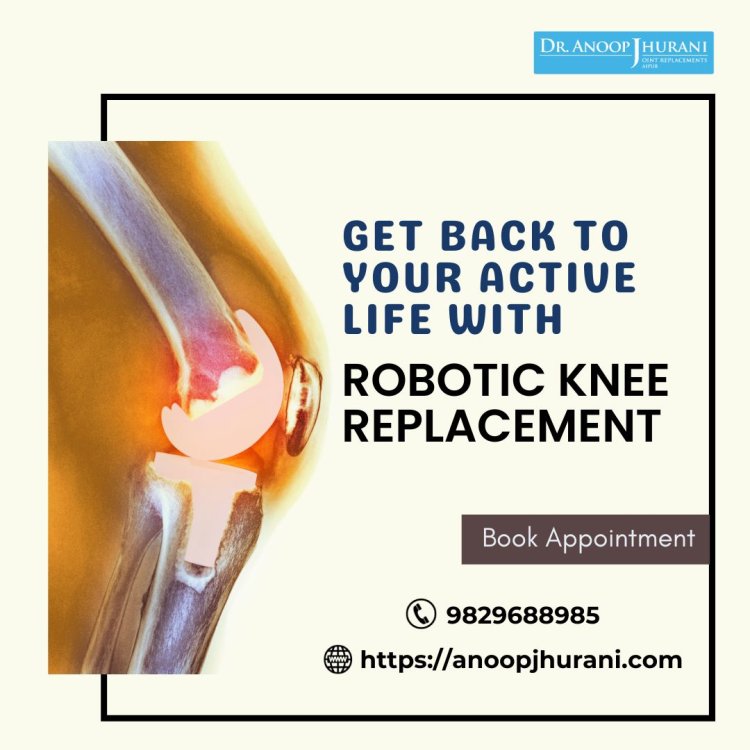Robotic Knee Replacement's Impact on Rehabilitation
Dr. Anoop Jhurani is a Robotic knee replacement doctor in Jaipur, India. Book an appointment online with Dr. Anoop Jhurani for treatment.
Share this Post to earn Money ( Upto ₹100 per 1000 Views )

Knee pain can be a relentless obstacle, hindering your mobility and affecting your quality of life. For those considering knee replacement surgery, the prospect of a faster recovery with less pain is undoubtedly appealing. Robotic knee replacement surgery has emerged as a groundbreaking approach that offers just that.
The Robotic Advantage:
Robotic knee replacement involves the use of advanced technology to assist surgeons during the procedure. This technology provides real-time feedback and guidance, allowing for unparalleled precision in aligning and positioning the knee implant. But how does this translate to improved rehabilitation?
1. Smaller Incisions, Less Tissue Trauma: Robotic-assisted surgery typically involves smaller incisions compared to traditional knee replacement. As a result, there is less disruption to surrounding tissues, leading to reduced post-operative pain and swelling.
2. Enhanced Knee Alignment: The precise alignment of the implant achieved through robotic assistance is critical for rehabilitation. Proper alignment can result in a more natural knee movement, which is essential for a faster and smoother recovery.
3. Reduced Risk of Complications: With robotic technology, the risk of complications such as implant misalignment is minimized. Fewer complications mean fewer setbacks in your rehabilitation journey.
4. Customized Care: Robotic knee replacement allows for a highly individualized approach. The procedure is tailored to your unique anatomy, ensuring that the implant size and placement are optimized for your specific needs.
5. Faster Return to Normal Activities: Patients who undergo robotic knee replacement often experience a faster recovery. Many can resume their daily activities, including walking and climbing stairs, sooner than with traditional knee replacement surgery.
Rehabilitation after Robotic Knee Replacement:
Rehabilitation remains an integral part of the recovery process after robotic knee replacement. Physical therapy is typically recommended to help patients regain strength and mobility. The advantage is that, due to the precision of the surgery, the rehabilitation process tends to be less painful and progresses more smoothly.
Consult with an Orthopedic Specialist:
If you're considering knee replacement surgery, consulting with Dr. Anoop Jhurani is a crucial first step. They can assess your condition and determine whether robotic knee replacement is the right option for you. Robotic knee replacement surgery is transforming the way we approach knee pain and joint health. Its impact on rehabilitation is profound, offering patients the potential for a faster, less painful recovery. With the help of this innovative technology and expert orthopedic care, you can regain your mobility and quality of life more swiftly than ever before. Don't let knee pain hold you back—explore the possibilities of robotic knee replacement for a brighter, pain-free future.













![ProstaBiome Prostate Formula USA Official Website, Reviews [2024] & Price For Sale](https://blog.rackons.in/uploads/images/202405/image_380x226_664a2b28ed6a4.jpg)
